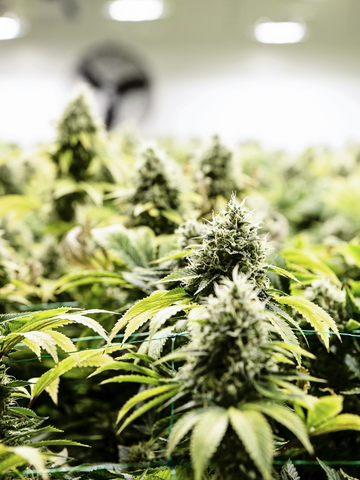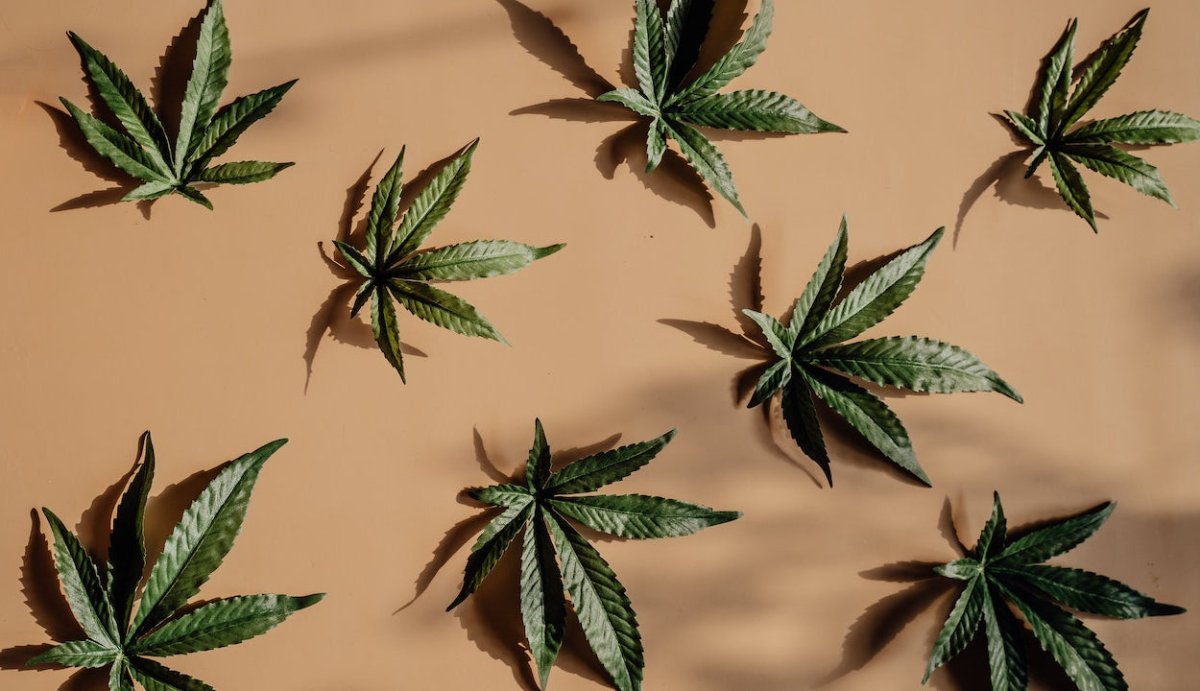Your Cart is Empty
FREE SHIPPING ON ALL ORDERS $75+
When hemp was officially legalized with the 2018 U.S. Farm Bill, all sorts of hemp-derived cannabinoids started coming to light–from the mild mannered CBD to heavier hitters like Delta-8-THC and THC-O.
Now, hemp-derived Delta-9-THC is hitting the shelves, and people have questions–what is it? Is it the same as traditional delta-9, or is hemp derived Delta-9-THC synthetic?
While it’s true that some hemp-derived cannabinoids are “synthesized” from CBD, most don’t actually match the definition for a synthetic cannabinoid. Hemp-derived Delta-9 is true to its name–real Delta-9, just like the ultra-potent cannabinoid derived from marijuana, but with fewer restrictions because of how it’s sourced–all thanks to a particular legal loophole.
Contrary to popular belief, though, this loophole isn’t synthesization, and Delta-9 from hemp is naturally sourced. To better understand how this can be, here’s what you should know:
Table of Contents
What is hemp-derived Delta-9?
What is a Synthetic Cannabinoid
Hemp Delta-9 is Not Synthetic
Hemp Delta-9 Legality
Where to Buy Hemp D9 Products?
Yes, Delta 9 THC is a natural compound. It is one of the many cannabinoids found in cannabis plants, including both marijuana and hemp. Delta 9 THC occurs naturally in the resin of cannabis flowers and is responsible for the psychoactive effects commonly associated with cannabis consumption.
Unlike synthetic cannabinoids, Delta 9 THC is directly extracted from the plant material, making it a naturally occurring substance rather than a man-made one.
We said Delta-9 from hemp is a natural cannabinoid, and that’s exactly the case. Hemp-derived Delta-9 is the exact same Delta-9 that’s found in the most potent cannabis strains.
The only difference in Delta-9 from marijuana and from hemp is the potency–a cannabis strain must contain less than 0.3% Delta-9-THC to be legally classified as a hemp strain.
If you’re doing the math, you probably have some questions, like:
For those who aren’t familiar with the hemp manufacturing process, all signs point to synthesization, but that’s not the case. Before we explain how Delta-9 products can be made from hemp (and answer all of the questions above), let us clarify what a synthetic cannabinoid actually is and why this distinction matters:
If you misunderstand the way that hemp-derived cannabinoids are sourced and used, using the term “synthetic cannabinoid” can be harmful. Usually, the term “synthetic cannabinoid” refers to common street drugs like K2 (also known as “spice”). These substances are completely man made and not derived from any natural cannabis material at all. They can be dangerous, and they are illegal.
Unfortunately, there is no official definition for the term “synthetic” as used by the Drug Enforcement Agency. One interpretation of what is defined as a synthetic cannabinoid comes from a description used in a legal case from 2018 which states the following:
“[U]nlike THC, which is a partial agonist, synthetic cannabinoids are full agonists. This means, according to Dr. Trecki [a DEA pharmacologist who routinely testifies for the Government in criminal cases about the nature and effects of synthetic cannabinoids], synthetic cannabinoids produce a more intense reaction than THC.”
It’s important to point out that K2 is a series of chemicals that imitates THC in a way that allows it to interact with the endocannabinoid system in a much more potent manner. K2 is a full agonist and produces effects that are substantially stronger than what users experience from cannabis-derived cannabinoids. In many cases, this leads to potent side effects and dependence, things that are far less likely to happen when using natural cannabinoids.
Some of the confusion comes from the way that other popular hemp cannabinoids are made, like Delta-8 and Delta-10. These cannabinoids are not naturally occurring in hemp in large amounts either, so a “synthesization” process is used to create them. More accurately, a process called “isomerization” is used to convert CBD to Delta-8, Delta-10, and other cannabinoids.
Isomerization is the act of transforming one molecule into its isomer. Isomers are molecules that contain all of the same compounds, just arranged in a different order.
In other words, isomerization does not introduce synthetic material. It merely uses a catalyst (an acid) to transform one hemp-derived cannabinoid into another, and then all of the acid material is removed. This process starts with natural hemp material and ends with only hemp cannabinoids–no synthetic cannabinoids involved.
Many people incorrectly believe that this is how Delta-9 is made, but that’s not the case, and even if it were, it wouldn’t make the Delta-9 “synthetic.” It would simply make it an isomer.
Now to the obvious question–if Delta-9 isn’t synthesized, how do manufacturers make use of the 0.3% Delta-9-THC in hemp material? Let us clarify:
Despite being available in only very small quantities, hemp manufacturers are able to make use of the Delta-9 that is naturally present in hemp material because it is a byproduct of the CBD isolation process. When CBD extract is crystallized, a method used to purify it when making products like CBD isolate, a liquid byproduct called “mother liquor” is created. The mother liquor contains all of the other hemp-derived cannabinoids, like CBG, CBN, and yes–Delta-9-THC.
Of course, by federal law, the original hemp material can only contain 0.3% Delta-9-THC by dry weight. So, the Delta-9 content in the mother liquor is small and it needs to be refined to isolate the Delta-9 molecules before they can be used to make hemp-derived delta-9 products.
Once the Delta-9 extract is refined, it can be used to create legal hemp Delta-9 products–but only if the manufacturer follows a few important guidelines:

That’s right–even the final product must contain 0.3% Delta-9-THC or less to be considered a legal hemp product. We know what you’re thinking–that’s a tiny amount, not even close to rough to produce D9’s classic psychoactive effects–but you probably haven’t done the math yet, so we’ll do it for you:
The law says that Delta-9-THC can be present in quantities of up to 0.3% Delta-9-THC. This measurement must be by dry weight–which is why hemp Delta-9 cannot easily be added to tinctures and beverages, which have little to no dry weight.
However, for dry products like gummies and other edibles, the math adds up. A 1 gram gummy can contain 0.3% Delta-9-THC, or 3 milligrams. A 100 gram cookie can contain one hundred times that amount–up to 300 milligrams of THC.
To put that into perspective, a regular gummy bear weighs between 2 and 3 grams. That means hemp producers can legally pack between 6 and 9 milligrams of Delta-9-THC into a gummy the size of a gummy bear, which is more than enough for a beginner’s dose.
Nope! Gummies and other products made from Delta-9, whether from hemp or marijuana, are made with naturally derived THC. Delta-9-THC is easy to extract rom cannabis and does not need to be synthesized.
So, Delta-9 hemp products are legal to produce and sell, and they aren’t made using any shady synthetic tactics. Still, there are some legal caveats to be aware of:
While Delta-9-THC is legal by federal standards, not all states agree with this stance. The majority of states align with the federal hemp laws, but there are some that have specifically restricted the sale of hemp-derived THC products or have limited them to being sold only in state licensed dispensaries.
Because hemp-derived Delta-9 is still relatively new, the laws affecting these products may be lumped under Delta-8-THC laws. That said, you should check your local Delta-8-THC laws to make sure that hemp-derived THC is legal in your state. You may want to read “Is Delta-8-THC Legal? A State by State Guide to Delta-8 Laws.”
While CBD and other hemp-derived products are plentiful, Delta-9 from hemp is still new (and can be hard to find). After verifying that hemp Delta-9 is legal in your state, you can likely find legal hemp D9 products for sale online.
It’s really important that you understand how to choose high-quality hemp THC products. Look for Delta-9 products that are made from legal hemp material in a cGMP compliant facility. The brand you choose should also be willing to provide a Certificate of Analysis that proves the potency of their THC products.
If you’re ready to shop for hemp-derived THC today, check out our Elev8 Collection.
Delta 9 THC is a naturally occurring compound found in cannabis plants, including both marijuana and hemp. It is not synthetic when extracted directly from these plants.
Delta 9 THC is derived from hemp through a process of extraction and refinement. The hemp plant is harvested and processed to extract cannabinoids, including CBD. Through a series of chemical reactions and purification steps, CBD can be converted into Delta 9 THC, ensuring the final product contains no more than 0.3% Delta 9 THC by dry weight to comply with legal standards.
The primary difference between Delta 9 and Delta 8 THC, even when hemp-derived, lies in their chemical structure and psychoactive effects. Delta 9 THC is more potent and produces stronger psychoactive effects. Delta 8 THC, while still psychoactive, is less potent and provides a milder high. Both can be derived from hemp, but Delta 9 THC in hemp products must not exceed 0.3% by dry weight to be legal under federal law.
Yes, Delta 9 edibles can be derived from hemp. These edibles must adhere to federal regulations, containing no more than 0.3% Delta 9 THC by dry weight to be considered legal.
Comments will be approved before showing up.



